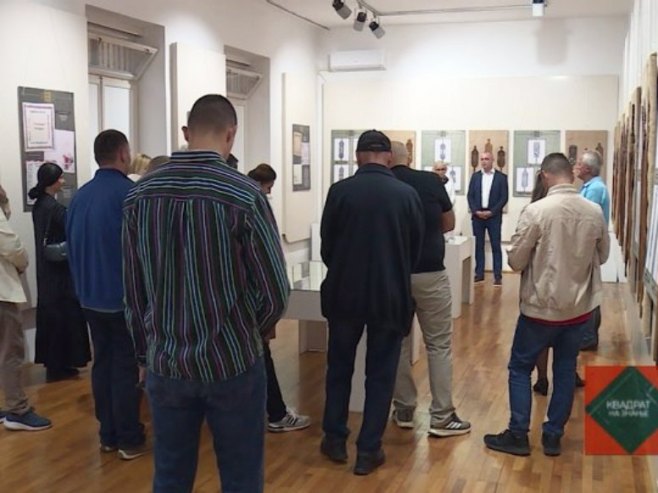Handcrafted spinning distaffs and embroidered linen handkerchiefs have left a lasting mark on the cultural history of the Serb people.
On the spinning distaff, women created threads of wool that were later turned into clothing, while embroidered handkerchiefs, beyond their practical use, often carried symbolic messages — tokens that young women in patriarchal societies gifted to men as signs of affection.
The creativity of men from the Zlatibor region, who crafted the distaffs, and the skill of women who delicately shaped the wool threads, testify to the timeless value of traditional folk art.
All of this is presented in the exhibition “The Language of the Soul”, prepared by the National Museum of Užice and showcased at the “Old Herzegovina” Museum in Foča.
The exhibition — “The Language of the Soul” — brings together wood, wool, and embroidered fabric, forming a poetic tribute to the artistry of everyday life.
Out of ninety-seven distaffs preserved in the museum collection, thirty-eight pieces were displayed in Foča, each telling its own story about heritage, patience, and the enduring connection between craftsmanship and the human spirit.
Source: RTRS









